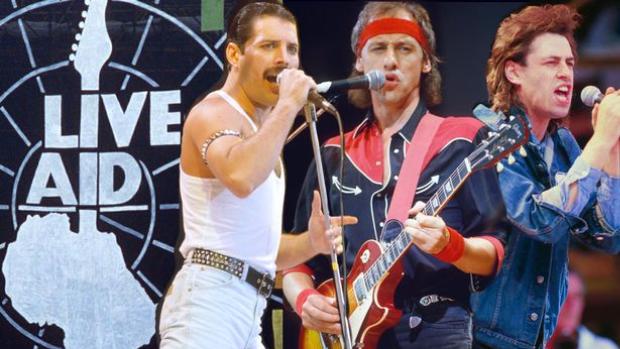In the summer of 1985, the world witnessed an unprecedented musical event that brought together some of the biggest names in the music industry for a cause greater than themselves. The Live Aid concerts, organized by musician and philanthropist Bob Geldof, captured the hearts and minds of millions while raising funds to alleviate the devastating famine in Ethiopia. These historic concerts, held simultaneously in London’s Wembley Stadium and Philadelphia’s JFK Stadium on July 13, 1985, marked a turning point in the way music and activism intersected.
The Live Aid concerts boasted an unparalleled lineup of legendary artists from both sides of the Atlantic. Icons such as Queen, U2, David Bowie, Madonna, Paul McCartney, Mick Jagger, and many others took the stage, delivering electrifying performances that would go down in history. The event was broadcast to an estimated global audience of 1.9 billion people, making it one of the largest television broadcasts ever at the time.
The impact of Live Aid extended far beyond the music itself. The concerts raised over $125 million in aid for Africa, creating a massive wave of awareness and sparking a global movement to address the famine crisis. The sheer scale of the event, combined with the star power of the performers, propelled the issue of poverty and hunger into the international spotlight.
The concerts became a symbol of unity, as people from all walks of life came together, transcending borders and cultural barriers, to support a common cause. Live Aid showcased the power of music to inspire and mobilize individuals, prompting many to donate generously and contribute to the relief efforts.
The ripple effects of Live Aid were profound. It led to the formation of organizations like Band Aid Trust and USA for Africa, which continued to raise funds and promote awareness about hunger and poverty. Additionally, the success of Live Aid set a precedent for future benefit concerts and humanitarian efforts, demonstrating that music could serve as a catalyst for change.
Decades later, the legacy of Live Aid still resonates. It remains a testament to the ability of artists and ordinary individuals to come together and make a meaningful difference in the world. The concert’s impact on the music industry, philanthropy, and global consciousness cannot be overstated.
In conclusion, the Live Aid concerts of 1985 were a watershed moment in music history. They showcased the incredible power of music to transcend boundaries, unite people, and make a positive impact on society. The event left an indelible mark on popular culture and inspired generations to use their voices and resources for the greater good. Live Aid stands as a shining example of how music, compassion, and collective action can change the world.
newshub




Recent Comments